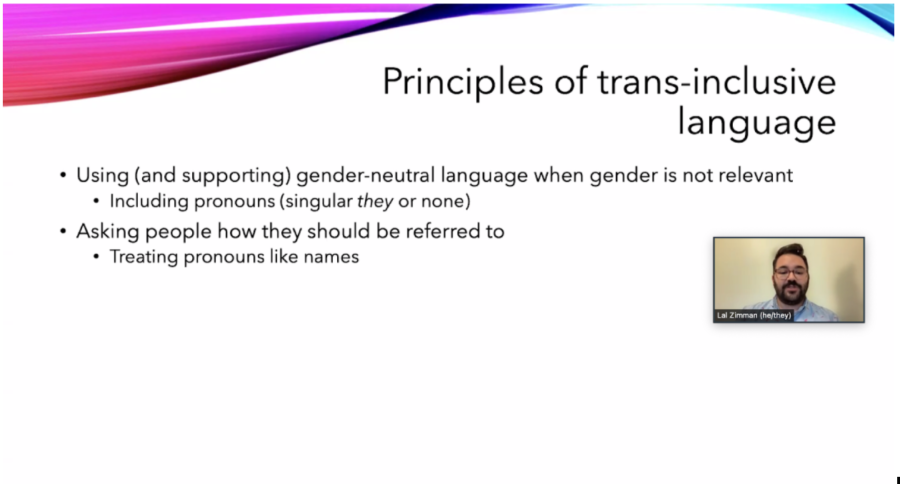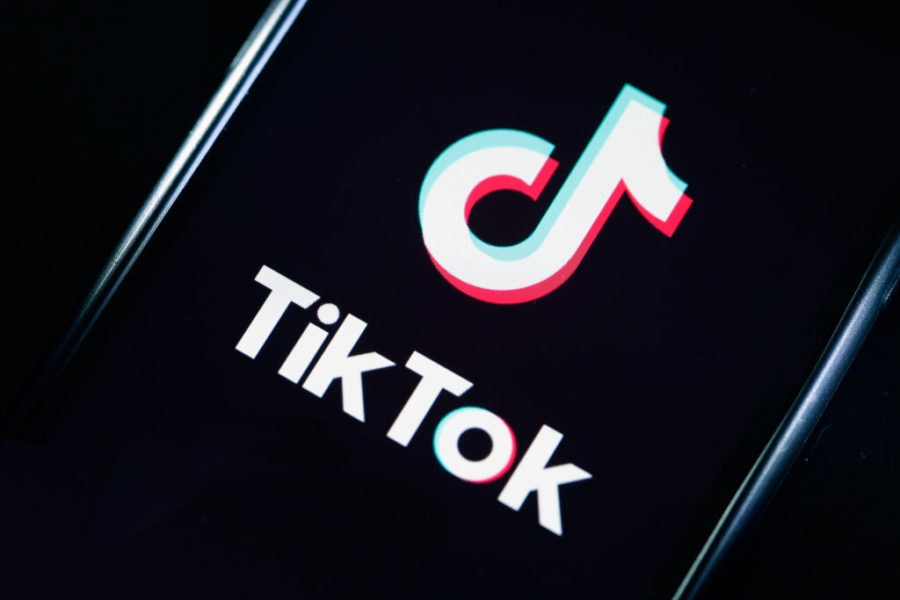A discussion on linguistic justice
November 4, 2021
The Writing and Media Center hosted its second event in the 2021-22 “Speaker Series” on Nov. 4. The event featured a panel of three educators with expertise in a range of different fields regarding gender and diversity. The panel was focused on language inclusion and the harm of linguistic injustice.
“It doesn’t take much to silence someone who was used to being silenced…” says Allyson Jule, an associate of the University of Oxford’s International Gender Studies Center. “I do think that attending to linguistic space can help demonstrate linguistic injustice and what silence itself can mean.”
There were several instances shared by Jule where the engagement and attitude of the educator in a class or lecture directly affected the participation of female students. According to Jule, the women in her research tended to be silenced more often, as they received limited engagement from the teacher or professor, and they were overshadowed by the participation of men. As stated by Jule, this pattern of silence might have greater implications for how women are treated by society as a whole.
“Gender and linguistic space seem to be reliably linked…” says Jule. “Silence among many female students seems to be a comfortable participation strategy.”
The panel also focused on pronouns, both the difficulty in implementing proper pronoun practices and the danger of allowing misgendering to persist in society. The panelists shared their different experiences in teaching the topic of inclusive language and the process of implementation for this practice.
According to Lal Zimman, “One of the principles that is kind of most central is the notion of using gender-neutral language specifically in cases where gender is not relevant.” Zimman is an associate professor of linguistics at UC Santa Barbara.
“…this issue is really an urgent importance for trans peoples’ lives and well-being, and there is a growing literature demonstrating the impact that language such as pronoun use, but certainly not limited to that, has on trans peoples’ mental health.”
Panelist Joyhanna Yoo Garza also weighed in on the importance of proper use of pronouns within society. “…gender presentation does not match gender identity and that we should not assume, rather just ask…,” Yoo Garza said.
The Q&A portion explored many different types of linguistic injustice, including racialization in writing, as well as linguistic stigmatization. The panelists shared anecdotes and learning experiences from their varying backgrounds of expertise with the desire to build a collective understanding of the importance of linguistic justice.
The Writing and Media Center is currently planning its “Speaker Series” events for the spring semester. More details and information will be added to the Media Center’s website and social media pages.







